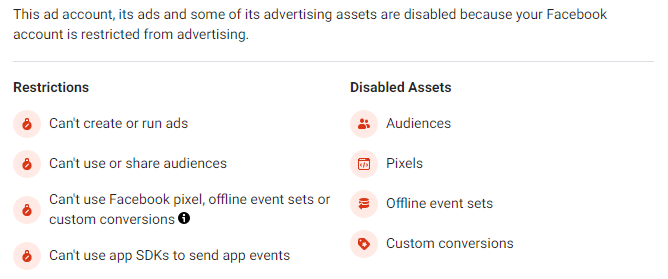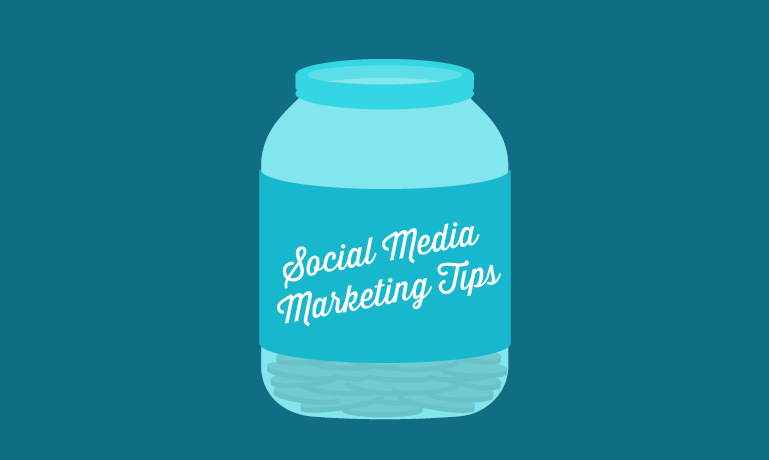Facebook Bans Political Ads
In a direct statement by Facebook, stating they will ban political ads after the polls close on Nov 3rd, 20202, leaves many Facebook advertising accounts blocked.
Advertising After the US Election
We’re temporarily stopping all ads about social issues, elections, or politics in the US after the polls close on November 4 at 12:00 AM PT. We’ll notify advertisers when this policy is lifted.
Learn more about how Facebook has been preparing for the elections.
Prohibited Ads Related to the United States 2020 Census and November 3, 2020 Election
Ads related to the US 2020 census participation and voting around the November 3, 2020 election are subject to additional prohibitions. Ads targeting the US with the following content aren’t allowed:
-
Ads that portray voting or census participation as useless/meaningless and/or advise users not to vote or participate in a census.
-
Ads that delegitimize any lawful method or process of voting or voting tabulation (including in-person voting on paper or on machines, absentee voting, vote by mail, and lawful collection of ballots) as illegal, inherently fraudulent or corrupt, or will result in a fraudulent or corrupt election administration or outcome.
-
Ads that delegitimize an election and/or result as fraudulent or corrupt because the result can’t be determined on the final day of voting and/or before ballots received after the final day of voting are lawfully counted.
-
Ads that claim voter fraud (such as voter impersonation, duplicate voting, or non-eligible individuals voting) is widespread and/or alters the outcome of elections and/or results in a fraudulent or corrupt election.
-
Ads that claim the election date or the mechanism for electing the President can be changed in ways not permitted by the Constitution or federal law.
-
Ads with premature claims of election victory.
-
Ads that are inconsistent with health authorities on voting safely.

Elections have changed since 2016, and so has Facebook. We have more people and better
technology to protect our platforms, and we’ve improved our content policies and enforcement.
Our Community Standards outline what is and is not allowed on Facebook. These standards
apply to both organic content and advertisements, and cover topics that may be implicated in
the context of voting and elections, like voter interference, voter fraud, electoral violence and
incitement and hate speech.
Our Advertising Policies are more restrictive than our Community Standards and apply to all
advertisers, including politicians and political campaigns. We prohibit ads that discourage voting,
prematurely claim victory, attempt to delegitimize the election, or are inconsistent with health
authorities on voting safely.
The following is an overview of how we’ve improved our Community Standards and Advertising
Policies to protect election integrity and prevent abuse. This is how we’re promoting reliable
election results; stopping voter interference and fraud; combating hate speech, violence and
incitement; and adopting stronger rules and greater transparency for political ads.
We have a responsibility to help people understand the election process
this year, particularly as more people vote by mail due to the pandemic and
experts predict that election results will take longer to count.
Before Election Night:
• We’re connecting people with facts about voting from the Bipartisan
Policy Center, including that voting by mail has a long history of
trustworthiness and election results might take longer than usual.
• These facts appear in our Voting Information Center (VIC), and
we’ll include labels on relevant posts about voting directing people
to these facts and more information in the VIC.
• We’ll remove posts that claim that people will get COVID-19 if they take
part in voting, and we’ll attach a link to authoritative information about
the coronavirus to posts that might use COVID-19 to discourage voting.
• We have an unprecedented global fact-checking network with 10 partners
in the US—three of which fact-check in both English and Spanish. When
a fact-checker rates a post as false, we reduce its distribution and show
a label with the fact-checker’s assessment. We displayed warnings on
more than 150 million pieces of content viewed on Facebook from the
US that was debunked by one of our third-party fact-checkers.
After polls close and before a winner is declared:
• We’ll show the status of results from presidential, US Senate, US House,
governor races in the VIC.
• We’ll remove ads if a candidate or party declares premature victory, and
we’ll also label posts from presidential candidates to note that counting
is still in progress and no winner has been determined.
• If presidential results aren’t known for days or weeks, we will help people
understand the ongoing process with notifications at the top of Facebook
and Instagram, facts about voting from the Bipartisan Policy Center and
curated news in News Feed and the VIC.
After a presidential winner is declared by a majority of major news outlets:
• We’ll show this at the top of the Facebook and Instagram apps and
in the VIC.
• If the declared outcome is contested by another candidate or party, we
will show the name of the declared winner in with notifications at the top
of Facebook and Instagram and label posts from presidential candidates
with the declared winner’s name and a link to the VIC.
Attempts to interfere with or suppress voting go against our policies,
and we work to proactively identify and remove this type of harmful
content, even if it comes from a politician.
We prohibit:
• Explicit and implicit misrepresentation of the dates, locations, times
and methods for voting or voter registration
• Misrepresentation of who can vote, qualifications for voting, whether
a vote will be counted, and what information and/or materials must be
provided in order to vote
• Misrepresentation of whether a candidate is running or not
• Calls for coordinated interference that would affect an individual’s
ability to participate in an election
• Content stating that voting participation may or will result in law
enforcement consequences
• Content claiming that the US Immigration and Customs Enforcement
(ICE) is at a voting location
• Explicit claims that people will be infected by COVID (or another
communicable disease) if they participate in the voting process
• Offers to buy or sell votes with cash or gifts
• Statements that advocate, provide instructions or show explicit intent
to illegally participate in a voting process
We invest significant resources to keep hate and incitement to violence
off our services. Our efforts to combat hate and violence explicitly prohibit:
• Any content containing statements of intent, calls for action or
advocating for violence due to voting, voter registration or the outcome
of an election
• Statements of intent or advocacy, calls to action or aspirational or
conditional statements to bring weapons to locations, including,
but not limited to, polling places, voter registration centers or other
elections administration locations
• Threats against election officials
• Content that targets a person or group of people on the basis of
certain protected characteristic(s) by denying them the right to
political participation
• Calls for people to engage in poll watching when those calls use
militarized language or suggest that the goal is to intimidate, exert
control, or display power over election officials or voters
We’ve adopted some of the most stringent rules about who can run political
ads online and have implemented industry-leading transparency standards.
• We set a restricted period for ads on social issues, elections and politics:
no new ads from October 27 – November 3
• We prohibit delegitimizing claims in ads that:
• Prematurely claim victory in the election
• Attempt to delegitimize the election because the result cannot
be determined on the final day of voting and/or before ballots are
lawfully counted
• Delegitimize any lawful method or process of voting, voting
tabulations as illegal, inherently fraudulent or corrupt, or will result
in a fraudulent or corrupt election administration or outcome
• Claim the election date or the mechanism for electing the president
can be changed in ways not permitted by the Constitution or
federal law
• Are inconsistent with health authorities on voting safely
• We don’t allow:
• Statements that suggest the inferiority of immigrants, migrants,
refugees and asylum seekers, as well as expressions of contempt,
dismissal or disgust directed at them
• Ads that claim a group of people on the basis of things like race,
ethnicity, or religion engage in behavior that threatens the physical
safety, health, or survival of others
• We block ads in the US from state-controlled media outlets.
• We don’t allow ads targeting the US from state-controlled media
outlets and we label ads from state-controlled media outlets on
the Ad Library Page, Pages, the Page Transparency section and in
News Feed in the US.
• We plan to temporarily stop running all social issue, electoral, and
political ads in the US after the polls close on November 3, to reduce
opportunities for confusion or abuse.





